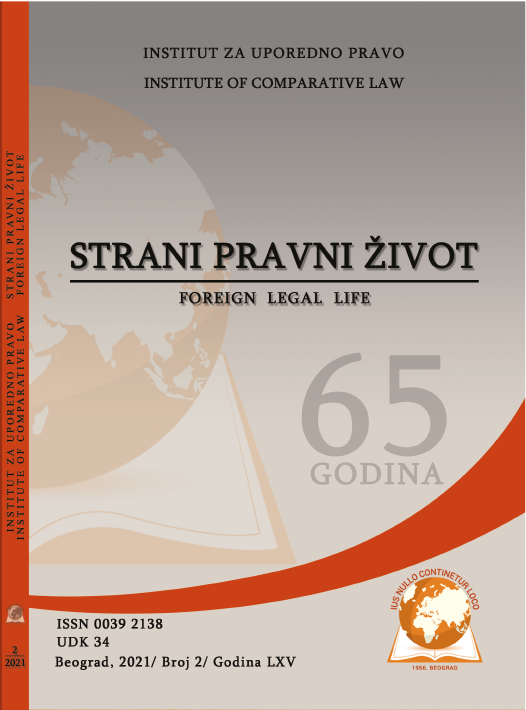CRIMINAL LIABILITY OF LEGAL ENTITIES IN LATVIA - GENERAL INSIGHT, PECULIARITIES AND TOPICALITIES
CRIMINAL LIABILITY OF LEGAL ENTITIES IN LATVIA - GENERAL INSIGHT, PECULIARITIES AND TOPICALITIES
Author(s): Kristīne Strada-Rozenberga, Jānis RozenbergsSubject(s): Criminal Law
Published by: Institut za uporedno pravo
Keywords: criminal law; criminal procedure; liability of legal entities
Summary/Abstract: The path that the Latvian normative regulation in criminal law and the Latvian criminal law doctrine took to arrive at the possibility of turning against legal entities by criminal law measures was neither fast nor simple. The initial position was that regulation like this would be incompatible with the basic principles of Latvian criminal law since, historically, psychological understanding of guilt has been characteristic in the Latvian criminal law, guilt is identified with a person’s mental attitude towards the criminal offence, and guilt also is one of the grounds for criminal liability. It was not clear how this understanding of guilt could be compatible with punishing such “legal fiction” as a legal person in the framework of criminal law. Ways, in which Latvia could adjust its legal regulation to various international normative documents that Latvia had acceded to, at the same time leaving the dominant basic institutions of the Latvian criminal law theory unaffected, were sought rather reluctantly. Discussions that lasted for years resulted in the inclusion into the Criminal Law coercive measures, existing outside the system of criminal penalties, applicable to legal persons, likewise, several criteria were defined as the grounds for applying these coercive measures to legal persons, the central of which was a criminal offence, committed by a natural person who was connected to the legal person, in the interests of the legal person or as the result of insufficient control by this legal person. Accordingly, criminal procedural regulation was created, which to a large extent equalled a legal person to an accused natural person in criminal proceedings. Although the criminal law and criminal law regulation, which provides for the possibility to apply criminal law coercive measures to legal persons in the framework of criminal proceedings has existed in Latvia for already 16 years, these criminal law instruments have started taking their place in the practice of applying law only in recent years, simultaneously also revealing deficiencies in the legal regulation, already now providing sufficient material for analysis to be used for improving these legal norms.
Journal: Strani pravni život
- Issue Year: 65/2021
- Issue No: 4
- Page Range: 655-665
- Page Count: 11
- Language: English

